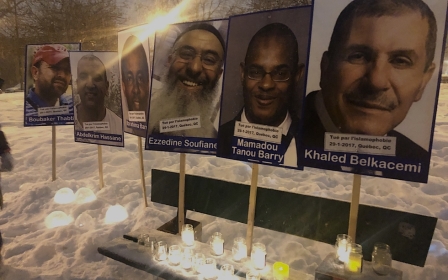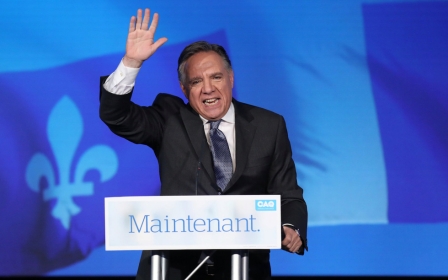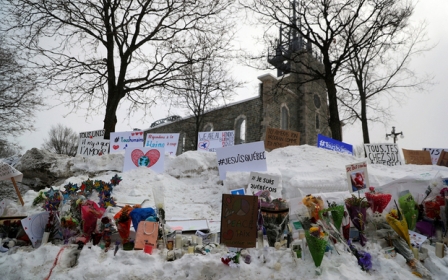No Islamophobia in Quebec, premier says days after anniversary of mosque attack
MONTREAL, Quebec - The head of the government of Quebec said Islamophobia doesn't exist in the Canadian province, only days after the two-year anniversary of a deadly shooting at a Quebec City mosque.
Francois Legault said on Thursday that he doesn't think it's necessary to devote a day to combating Islamophobia because it's not a problem in Quebec.
"I don't think there is Islamophobia in Quebec, so I don't see why there would be a day dedicated to Islamophobia," Legault said, as reported by CBC News.
Ihsan Gardee, executive director of the National Council of Canadian Muslims (NCCM), said Legault’s comments “are an absolute insult to the families of the victims and to Muslim communities in Quebec and across Canada who continue to grieve this tragedy”.
“Premier Legault is clearly out of touch with the realities of Islamophobia on the ground in Quebec. The Premier should immediately retract and apologize for his highly offensive and inaccurate comments and acknowledge that Islamophobia, just like other forms of hatred and racism, exists in Quebec and must be addressed,” Gardee said in a statement.
New MEE newsletter: Jerusalem Dispatch
Sign up to get the latest insights and analysis on Israel-Palestine, alongside Turkey Unpacked and other MEE newsletters
His comments come two days after people across Canada commemorated the deadly attack on the Quebec Islamic Cultural Centre on 29 January 2017.
The gunman, Alexandre Bissonnette, entered the mosque shortly after evening prayer two years ago and opened fire, killing six Muslim men and wounding 19.
The brazen attack on a house of worship was condemned across the country, with Prime Minister Justin Trudeau calling it an act of terrorism.
It also sparked ongoing, nationwide conversations about Islamophobia, hate crimes and incitement against religious and ethnic minorities in Quebec and Canada as a whole.
Bissonnette, who pleaded guilty last year to six counts of murder and six counts of attempted murder, espoused anti-immigrant views and appeared to be fascinated by far-right ideologues.
He told police investigators that he believed a terrorist attack was imminent and felt he "had to do something".
His sentencing hearing is scheduled for next week.
National Day of Action
Since the attack, Muslim community groups have called on the Canadian government to designate 29 January as a National Day of Action to Combat Hate and Intolerance.
The call, spearheaded by the NCCM, has received the backing of about 100 groups across Canada.
"Recent attacks against religious, racial and other minorities in Canada have demonstrated beyond any doubt that no one community can combat this hate alone. Rather, as Canadians, we must come together and unite, not only against Islamophobia but against all forms of hate," an open letter in favour of the National Day of Action reads.
Anti-Muslim hate crimes tripled in Quebec in 2016 and 2017, when 117 incidents were reported to police, according to the federal data agency, Statistics Canada.
Despite this, Legault - whose party was elected to lead a majority government in Quebec in October - has repeatedly said he doesn't believe Islamophobia is a problem.
His right-wing party has promised to slash immigration levels in the province, as well as ban public-sector employees from wearing religious symbols on the job.
That would bar Muslim women who wear headscarves, Jewish men who wear kippahs or Sikh men who wear turbans, among others, from working as teachers, judges or police officers.
A previous version of this bill, passed by Quebec's former provincial government, barred anyone from giving or receiving public services with their faces covered. It was challenged in court as unconstitutional.
Middle East Eye delivers independent and unrivalled coverage and analysis of the Middle East, North Africa and beyond. To learn more about republishing this content and the associated fees, please fill out this form. More about MEE can be found here.




